When it comes to buying a flat in Singapore, the Housing Development Board (HDB) loan is a popular financing option. If you are looking to purchase an HDB flat, it is important to understand the eligibility criteria for the HDB loan. This will help you determine whether you qualify for the loan and how much you can borrow.
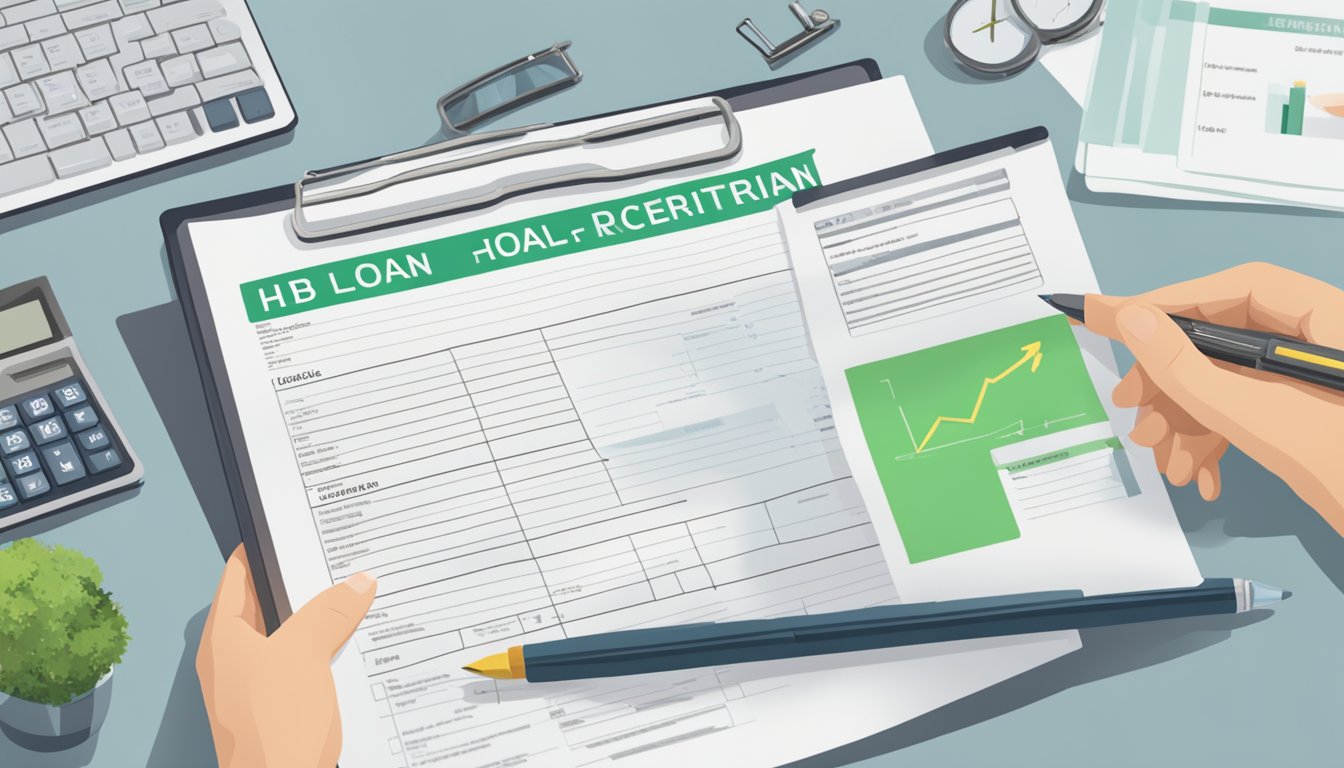
To be eligible for an HDB loan, you must meet certain criteria. Firstly, you must be a Singapore citizen or a permanent resident. Additionally, you must not own any other property, whether in Singapore or overseas. Your average gross monthly household income must also fall within certain limits, depending on the size of your household. Finally, you must not have taken more than two HDB loans previously.
It is worth noting that there are different types of HDB loans available, each with its own eligibility criteria and loan quantum. Understanding these criteria is crucial when deciding which HDB loan option is right for you. Keep reading to learn more about the different types of HDB loans and the eligibility criteria for each.
Key Takeaways
- Eligibility criteria for an HDB loan include citizenship, property ownership, household income, and previous HDB loans.
- There are different types of HDB loans available, each with its own eligibility criteria and loan quantum.
- Understanding the eligibility criteria for HDB loans is crucial when deciding which loan option is right for you.
Understanding HDB Loan Eligibility
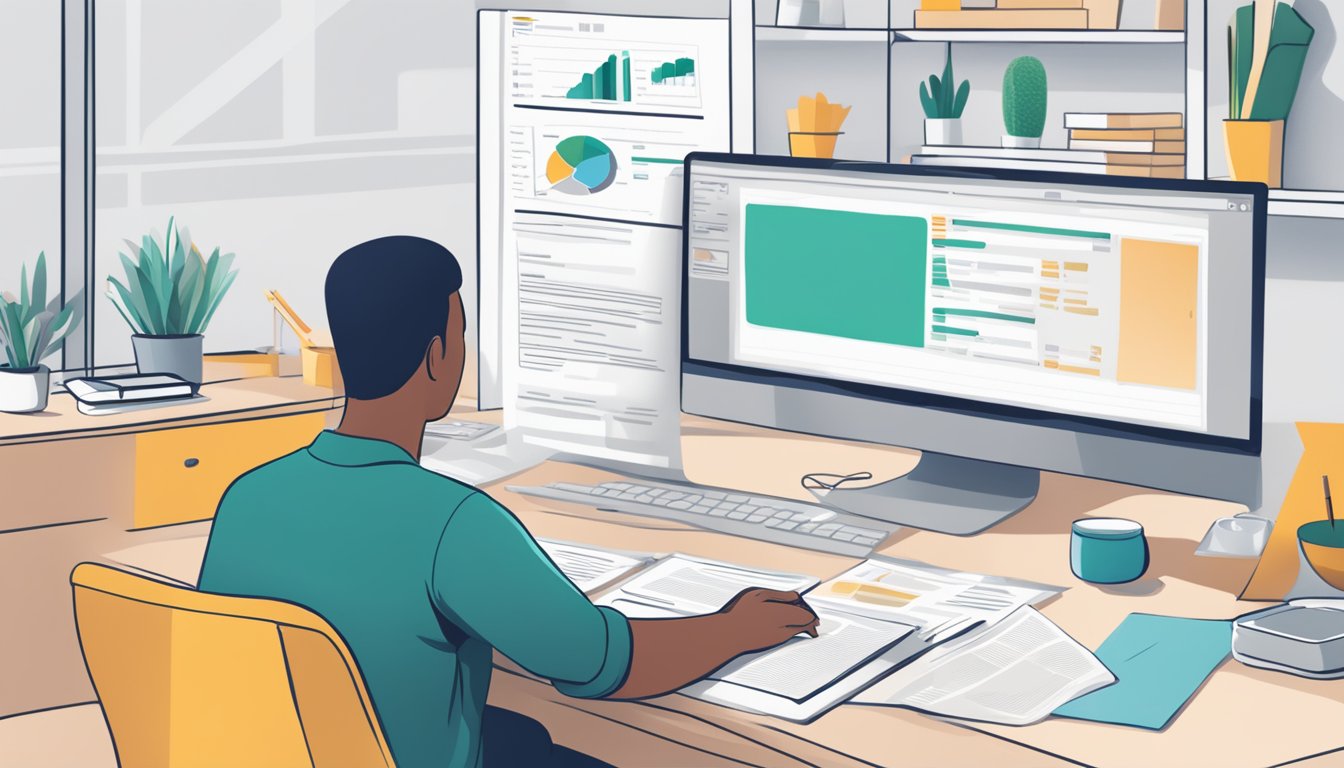
If you are a Singapore citizen or a Singapore Permanent Resident (PR) looking to purchase an HDB flat, you may be eligible for an HDB housing loan. However, before you apply for a loan, you need to ensure that you meet the eligibility criteria set by the Housing & Development Board (HDB). Here are the key things you need to know about HDB loan eligibility.
Basic Eligibility Criteria
To be eligible for an HDB loan, you must meet the following basic criteria:
- You must be a Singapore citizen or a Singapore Permanent Resident (PR).
- You must be at least 21 years old.
- You must not own any other property locally or overseas, or have disposed of any within the last 30 months.
- You must not have taken more than two HDB housing loans previously.
Citizenship and Age Requirements
To be eligible for an HDB loan, you must be a Singapore citizen or a Singapore Permanent Resident (PR). Additionally, you must be at least 21 years old to apply for an HDB loan. If you are a Singapore citizen, you can apply for an HDB loan at any age. However, if you are a Singapore PR, you must have held PR status for at least three years before you can apply for an HDB loan.
Income Ceiling and Household Status
Your eligibility for an HDB loan also depends on your monthly household income and household status. The income ceiling for HDB loan eligibility varies depending on your household status. For example, the income ceiling for a family with two or fewer members is $14,000, while the income ceiling for a family with three or more members is $21,000.
To be considered a family, you must be married, divorced, or widowed with children, or be a single parent with children. If you are single, you must be at least 35 years old to qualify for an HDB loan. However, if you are a first-time buyer and are purchasing a two-room flat in a non-mature estate, you can apply for an HDB loan at the age of 21.
In summary, to be eligible for an HDB loan in Singapore, you must be a Singapore citizen or a Singapore Permanent Resident (PR) who meets the age, income, and household status criteria set by the HDB. If you meet these criteria, you can apply for an HDB loan to finance your purchase of an HDB flat.
Types of HDB Flats and Loan Options
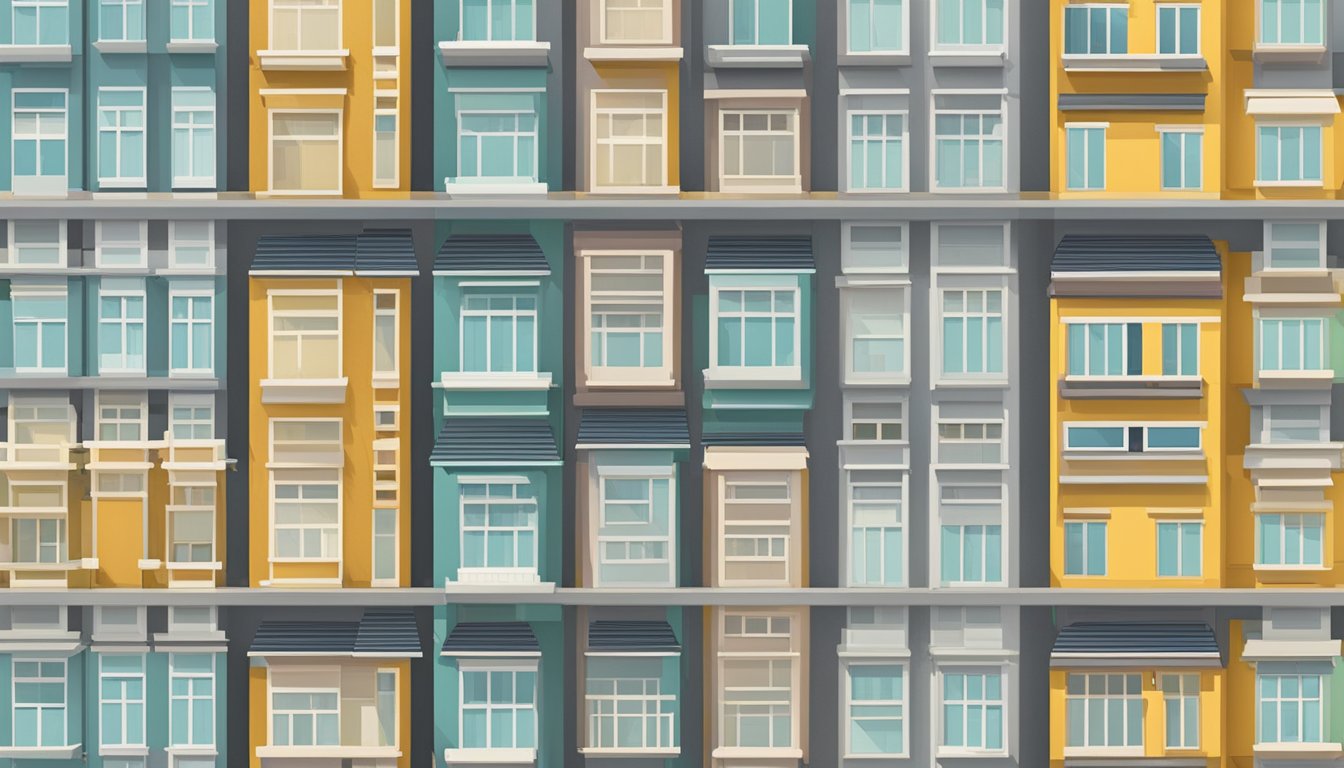
Flat Types and Size
When it comes to buying an HDB flat, there are several types and sizes to choose from. The most common types of HDB flats are 2-room flexi flats, 3-room flats, 4-room flats, 5-room flats, and executive flats. The size of the flats ranges from 36 square metres for a 2-room flexi flat to 150 square metres for an executive flat.
New Flats Versus Resale Flats
If you’re looking to buy an HDB flat, you have the option of buying a new flat or a resale flat. New flats are usually sold through the HDB Built-To-Order (BTO) exercise or the Sale of Balance Flats (SBF) exercise. BTO flats are uncompleted flats that are sold directly by HDB, while SBF flats are unsold flats from previous BTO exercises.
On the other hand, resale flats are flats that have been previously owned and are being sold by their current owners. Resale flats are usually more expensive than new flats, but they also offer more options in terms of location and design.
Loan Types and Financial Institutions
If you’re looking to buy an HDB flat, you have two main options for financing your purchase: the HDB housing loan or a bank loan. The HDB housing loan is a loan provided by HDB to eligible buyers at a concessionary interest rate.
To be eligible for the HDB housing loan, you must meet certain criteria, including income eligibility and the type of flat you’re buying. The HDB housing loan is only available for the purchase of HDB flats in non-mature estates. If you’re buying a flat in a mature estate, you’ll need to apply for a bank loan.
When it comes to bank loans, you have several options to choose from. Most major banks in Singapore offer home loans, so it’s important to shop around and compare interest rates and terms before making a decision.
Overall, there are several factors to consider when choosing the type of HDB flat and loan option that’s right for you. By understanding the different types of flats and loan options available, you can make an informed decision that meets your needs and budget.
Financial Planning for Your HDB Loan
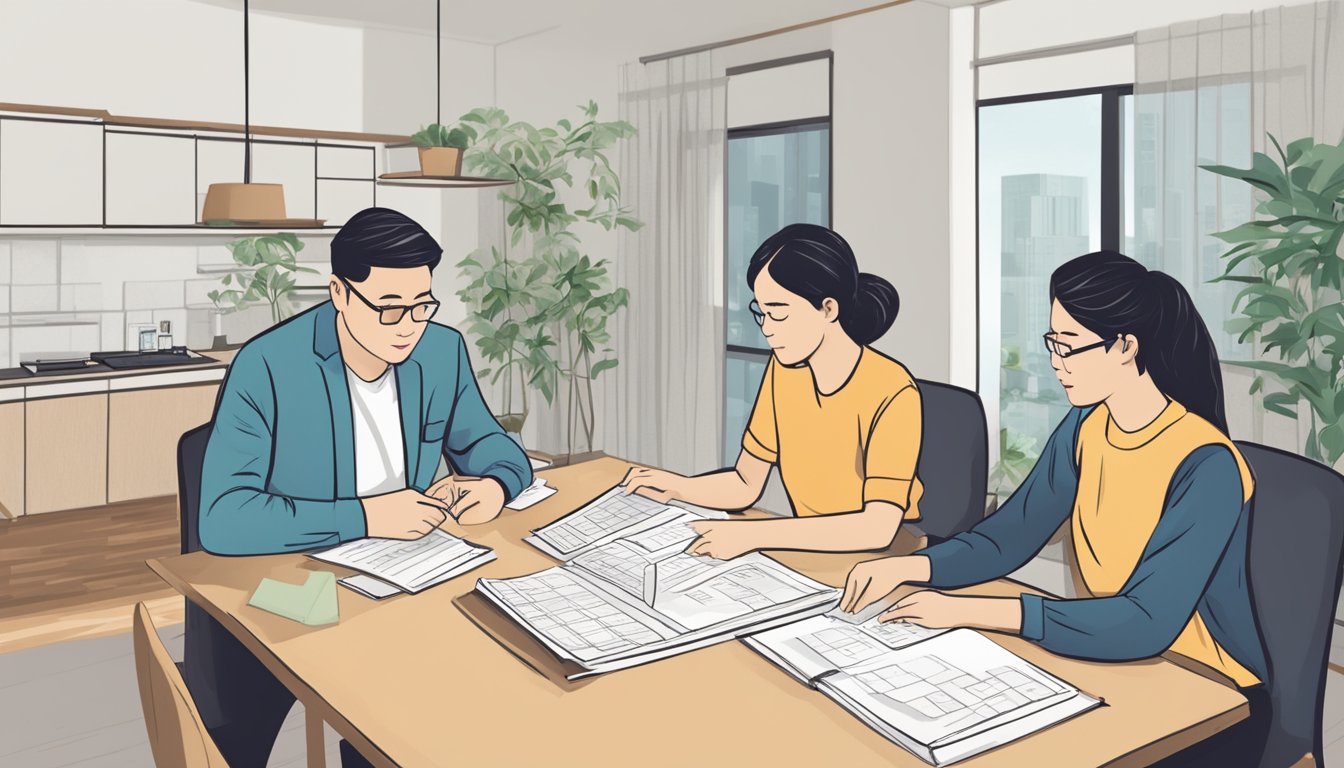
If you’re planning to buy an HDB flat, it’s important to have a solid financial plan in place. This will help you assess how much you can afford to borrow, as well as how much you’ll need to repay each month.
CPF Usage and Housing Grants
One of the first things you’ll need to consider is how much of your CPF Ordinary Account (OA) savings you can use to pay for your flat. You can use up to the full amount of your OA savings to pay for your flat, but it’s important to keep in mind that this will reduce the amount of savings you have for other purposes.
You may also be eligible for CPF Housing Grants, which can help to offset the cost of your flat. These grants are available to first-time homebuyers who meet certain eligibility criteria.
Assessing Loan Amount and Interest Rates
Once you’ve determined how much of your CPF savings you can use, you’ll need to assess how much you can afford to borrow. This will depend on a number of factors, including your income, expenses, and other financial obligations.
You’ll also need to consider the interest rate that you’ll be paying on your loan. The HDB loan interest rate is currently set at 2.6% per annum, but this may change over time. It’s important to keep in mind that interest rates can have a significant impact on your monthly repayments.
Repayment Period and Monthly Installments
When taking out an HDB loan, you’ll need to decide on the repayment period that works best for you. The maximum repayment period is 25 years, but you can choose a shorter period if you prefer.
It’s important to keep in mind that the longer your repayment period, the lower your monthly installments will be. However, this also means that you’ll be paying more interest over the life of the loan.
By considering these factors and working with a financial planner, you can develop a solid financial plan that will help you to afford your HDB loan and achieve your homeownership goals. Remember to always be mindful of your spending and to make smart financial decisions that will benefit you in the long run.
Application Process and Key Considerations
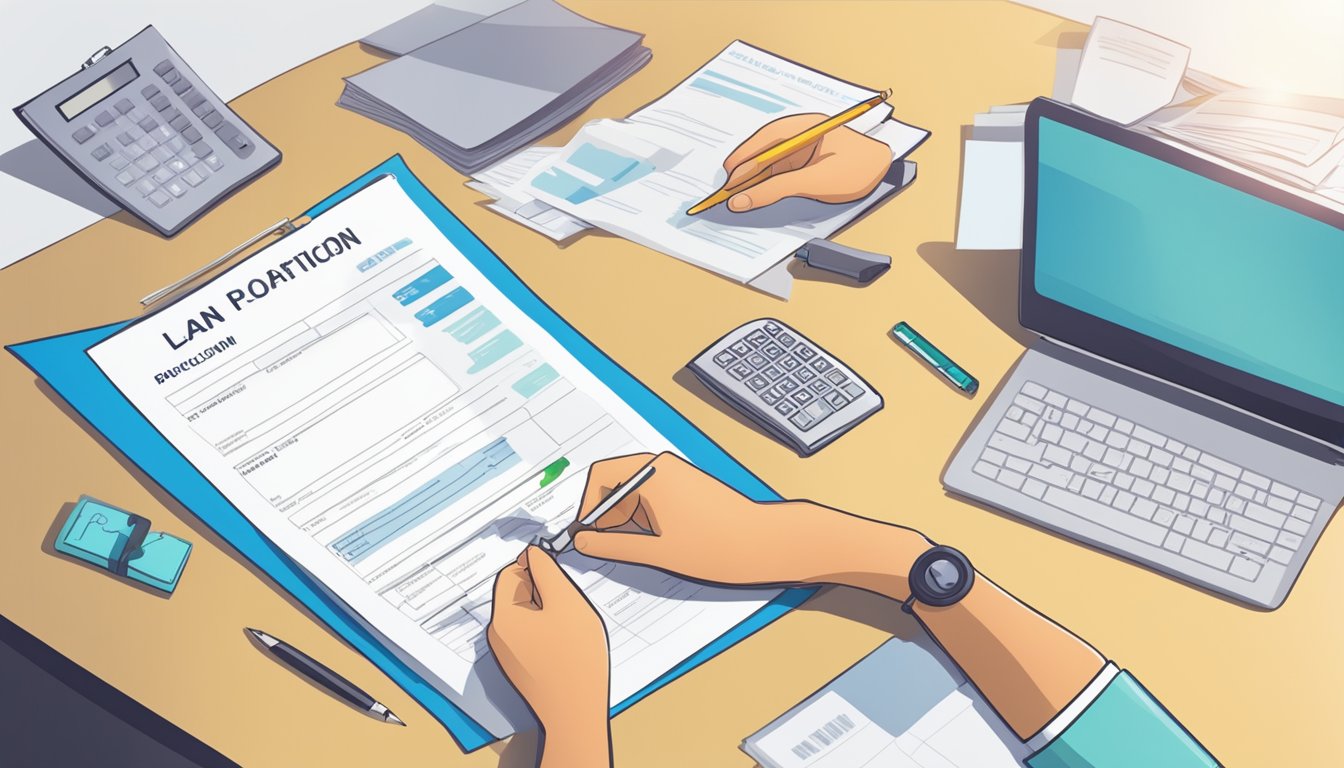
When it comes to applying for an HDB loan, there are a few key considerations to keep in mind. Here are some of the things you should be aware of:
HDB Loan Eligibility Letter (HLE)
Before you start looking for a home, it’s important to confirm your eligibility for an HDB loan. You can apply for an HDB Flat Eligibility (HFE) letter via the HDB Flat Portal. This will give you a holistic understanding of your housing and financing options before you embark on your home buying journey. The HFE letter will also help you to determine the loan amount you are eligible for.
To apply for an HLE, you will need to provide information about your income, financial commitments, and any outstanding debts you may have. You will also need to provide details about the property you are interested in purchasing.
In-Principle Approval and Conveyancing
Once you have received your HLE, you can then apply for an In-Principle Approval (IPA) from a financial institution. This will give you an estimate of the loan amount that you are eligible for, based on your financial situation.
Once you have received your IPA, you can then proceed with the conveyancing process. This involves transferring the ownership of the property from the seller to the buyer. During this process, you will need to pay a deposit and other fees, such as stamp duty and legal fees.
It’s important to note that the conveyancing process can take several weeks to complete. During this time, you should make sure that you have the necessary funds to cover the deposit and other fees.
By keeping these key considerations in mind, you can make sure that your HDB loan application process goes smoothly and that you are able to secure the financing you need to purchase your dream home.
Additional Factors Affecting Loan Eligibility
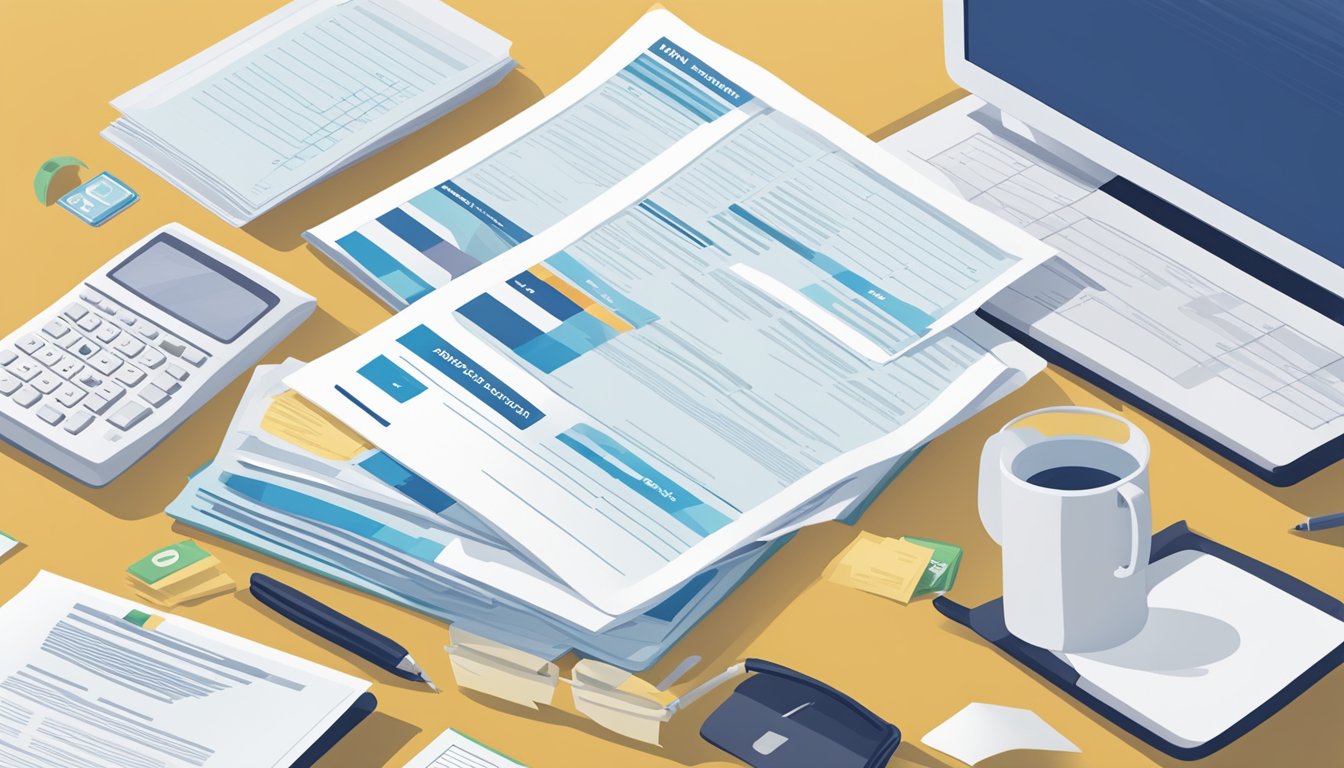
When it comes to applying for an HDB loan, there are additional factors that can impact your eligibility. In this section, we’ll explore two important factors: Property Ownership and Previous Loans, and Flexibility and Financial Situation.
Property Ownership and Previous Loans
One of the key factors that can affect your eligibility for an HDB loan is your property ownership and previous loans. If you already own a private residential property, you may not be eligible for an HDB loan. Additionally, if you have previously taken out a mortgage or other loan, this can impact your eligibility for an HDB loan.
To be eligible for an HDB loan, you must meet certain eligibility conditions. These conditions include factors such as your income, age, citizenship, and family nucleus. It’s important to keep in mind that the purchase price of the flat you’re interested in can also impact your eligibility.
Flexibility and Financial Situation
Another important factor that can impact your eligibility for an HDB loan is your flexibility and financial situation. If you have a good credit score and solid financial standing, you may have more flexibility when it comes to taking out an HDB loan. On the other hand, if you have a poor credit score or significant debt, this can impact your eligibility for an HDB loan.
When it comes to refinancing, it’s important to consider your personal loan and car loan obligations. These obligations can impact your financial situation and may make it more difficult to qualify for an HDB loan. It’s important to carefully consider your financial situation and obligations before applying for an HDB loan.
Overall, there are a number of factors that can impact your eligibility for an HDB loan. By carefully considering these factors and working to improve your financial situation, you can increase your chances of qualifying for an HDB loan and achieving your dream of home ownership.
Frequently Asked Questions
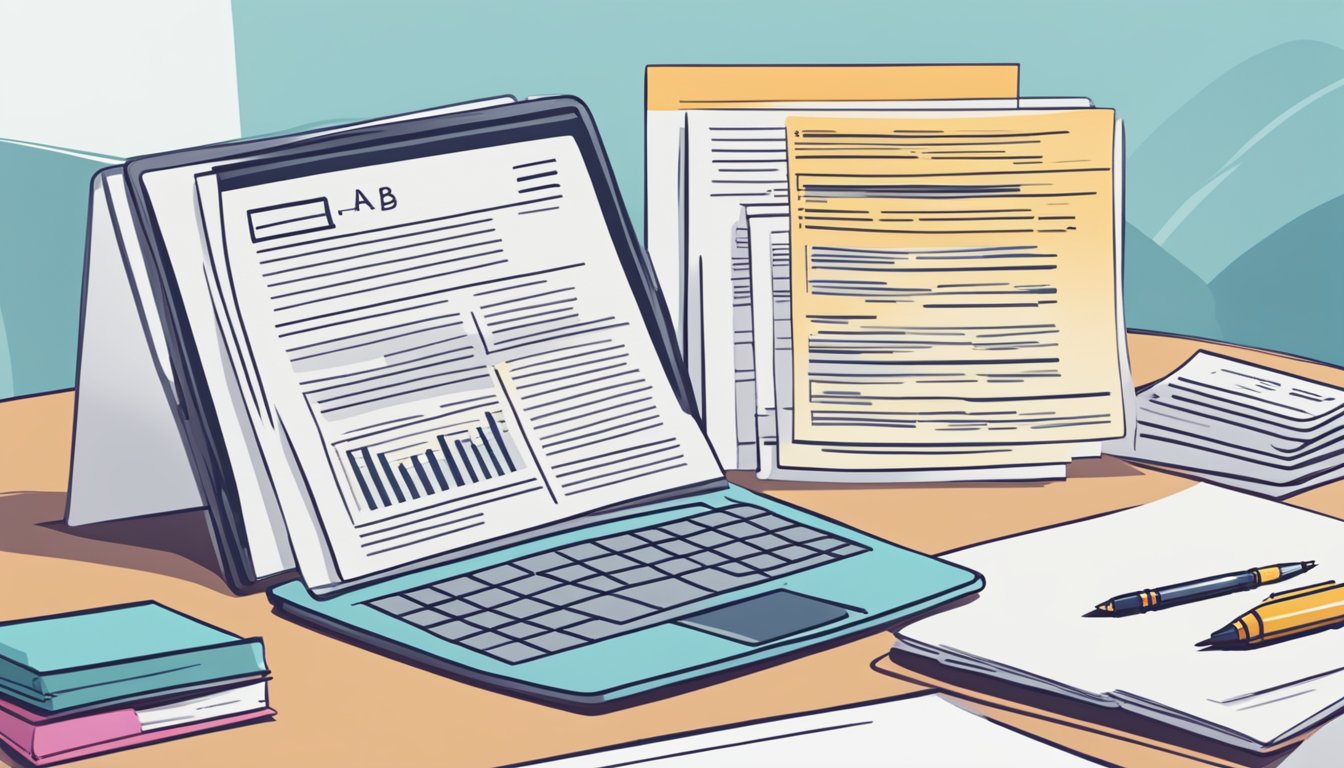
How can I determine if I’m eligible for a HDB loan?
To determine if you’re eligible for a HDB loan, you need to meet certain criteria set by the Housing & Development Board. These include age, citizenship, income, family nucleus, and ownership of other properties. You can check your eligibility by visiting the HDB website or contacting them directly.
What’s the maximum loan amount I could receive from HDB for a property purchase?
The maximum loan amount you could receive from HDB for a property purchase is 90% of the property’s purchase price or valuation, whichever is lower. The remaining 10% must be paid in cash or CPF savings.
Are there any age restrictions when applying for a HDB loan?
Yes, there are age restrictions when applying for a HDB loan. Applicants must be at least 21 years old and not more than 55 years old at the time of application. The loan must also be fully repaid before the applicant turns 65 years old.
What’s the current interest rate for a HDB loan, and how does it compare to bank loans?
The current interest rate for a HDB loan is 2.6% per annum. This rate is fixed throughout the loan tenure, unlike bank loans that may have fluctuating interest rates. However, the interest rate for bank loans may be lower than that of HDB loans, depending on the prevailing market conditions.
Can I still secure a HDB loan as a single applicant?
Yes, you can still secure a HDB loan as a single applicant. However, you must meet the eligibility criteria and have sufficient income to service the loan.
Is it possible to obtain a HDB loan for purchasing a resale flat?
Yes, it is possible to obtain a HDB loan for purchasing a resale flat. However, the loan amount will depend on the remaining lease of the flat and the age of the borrower. The loan tenure will also be shorter than that of a new flat purchase.




